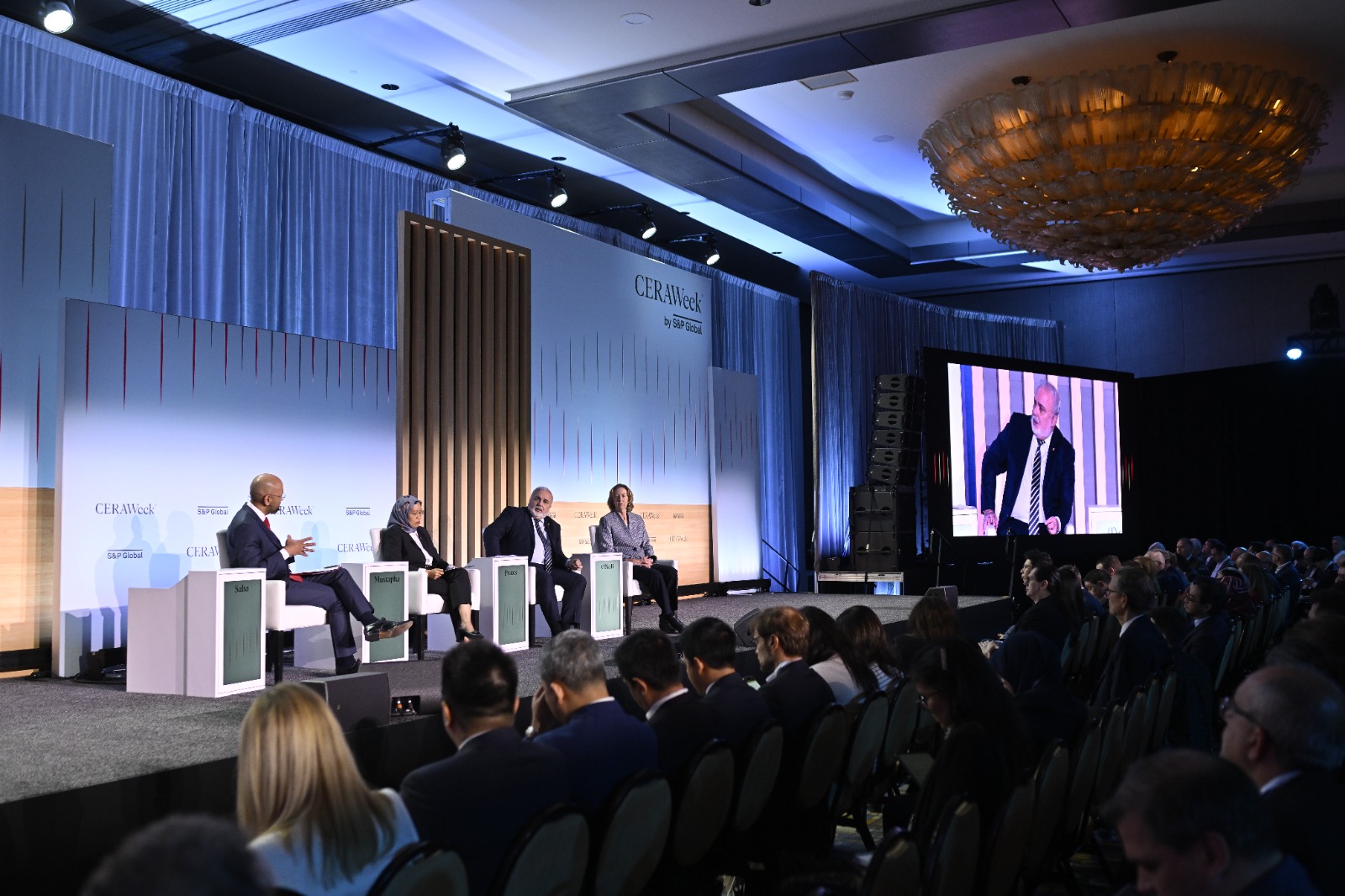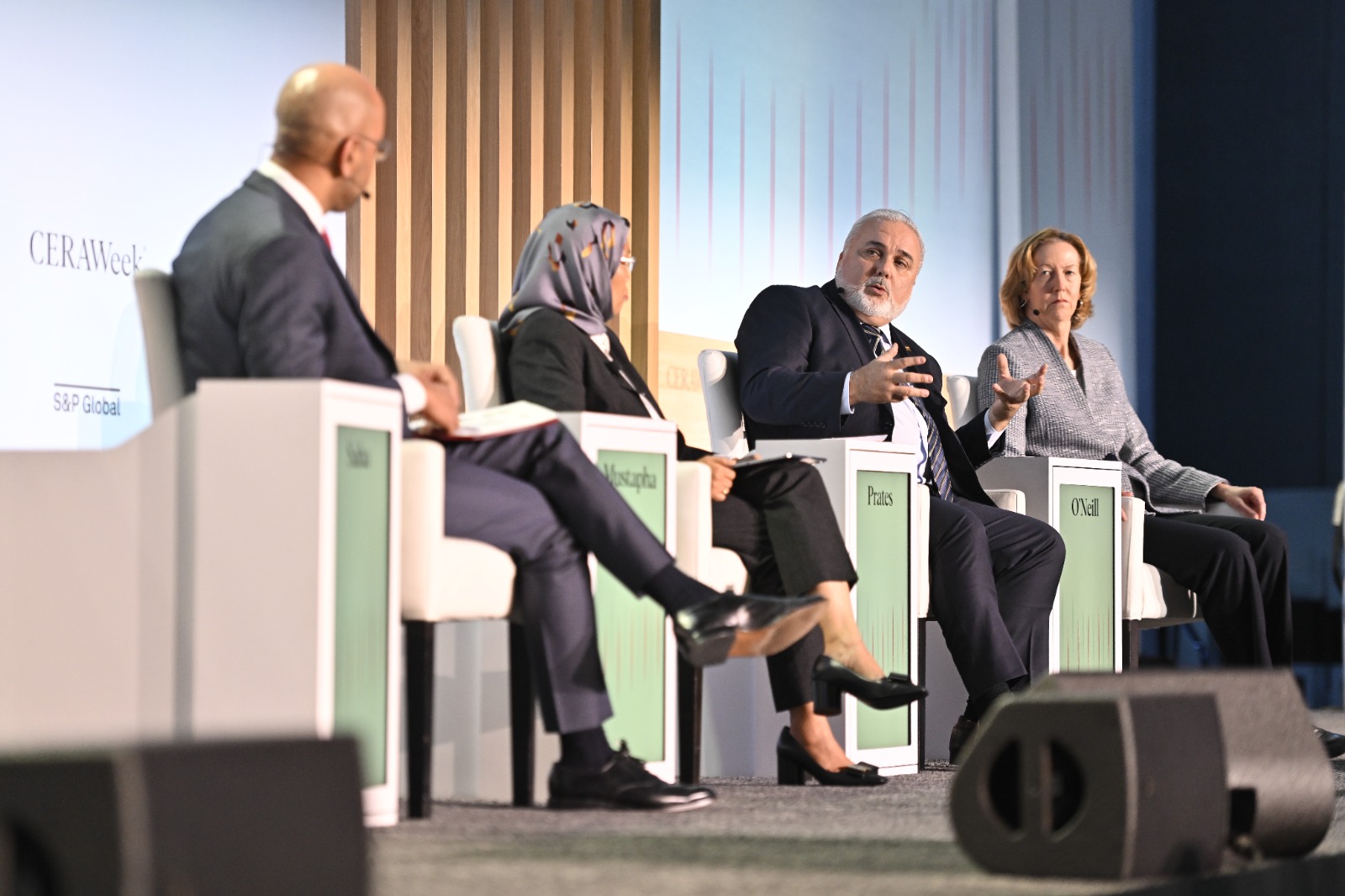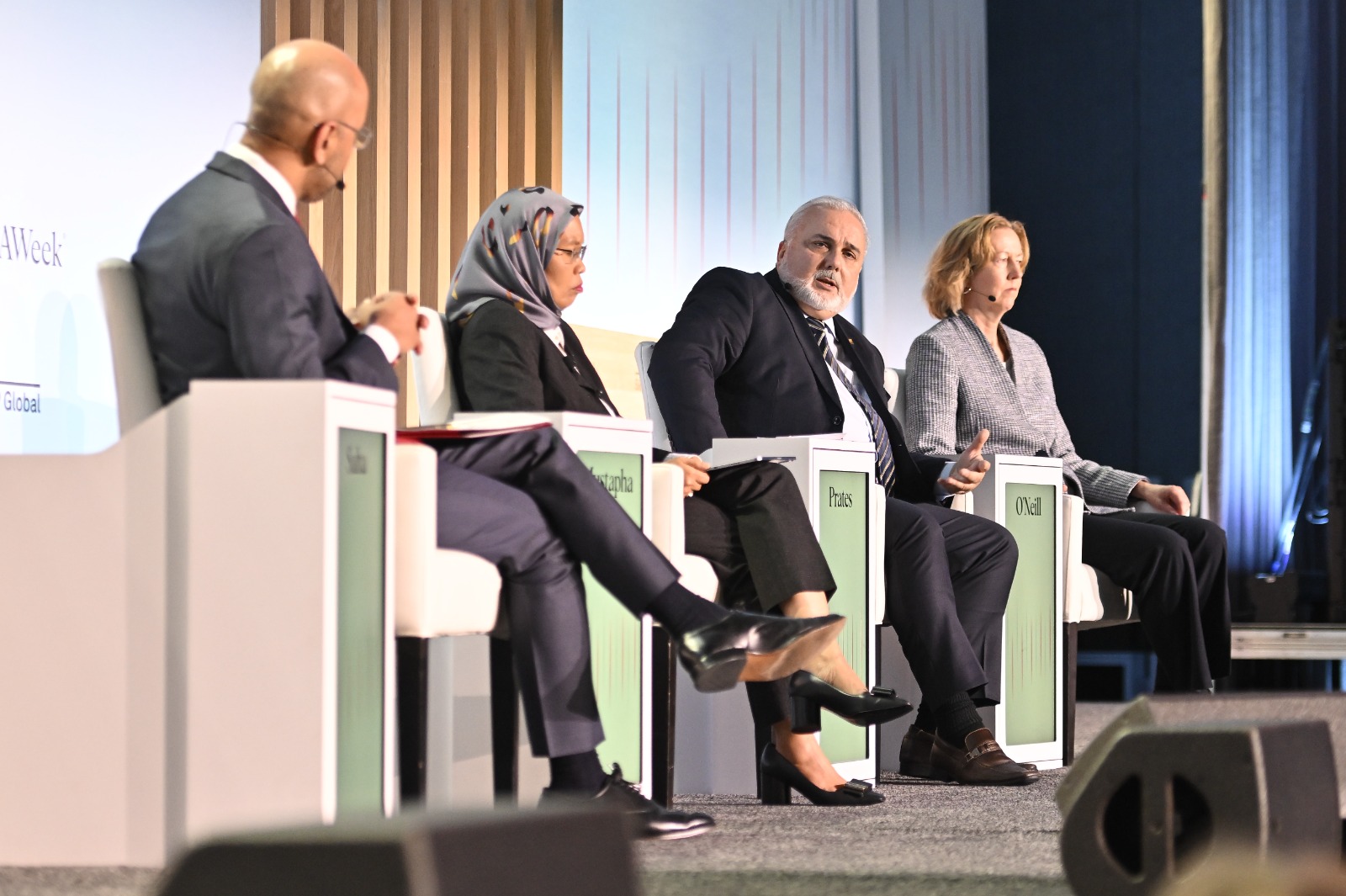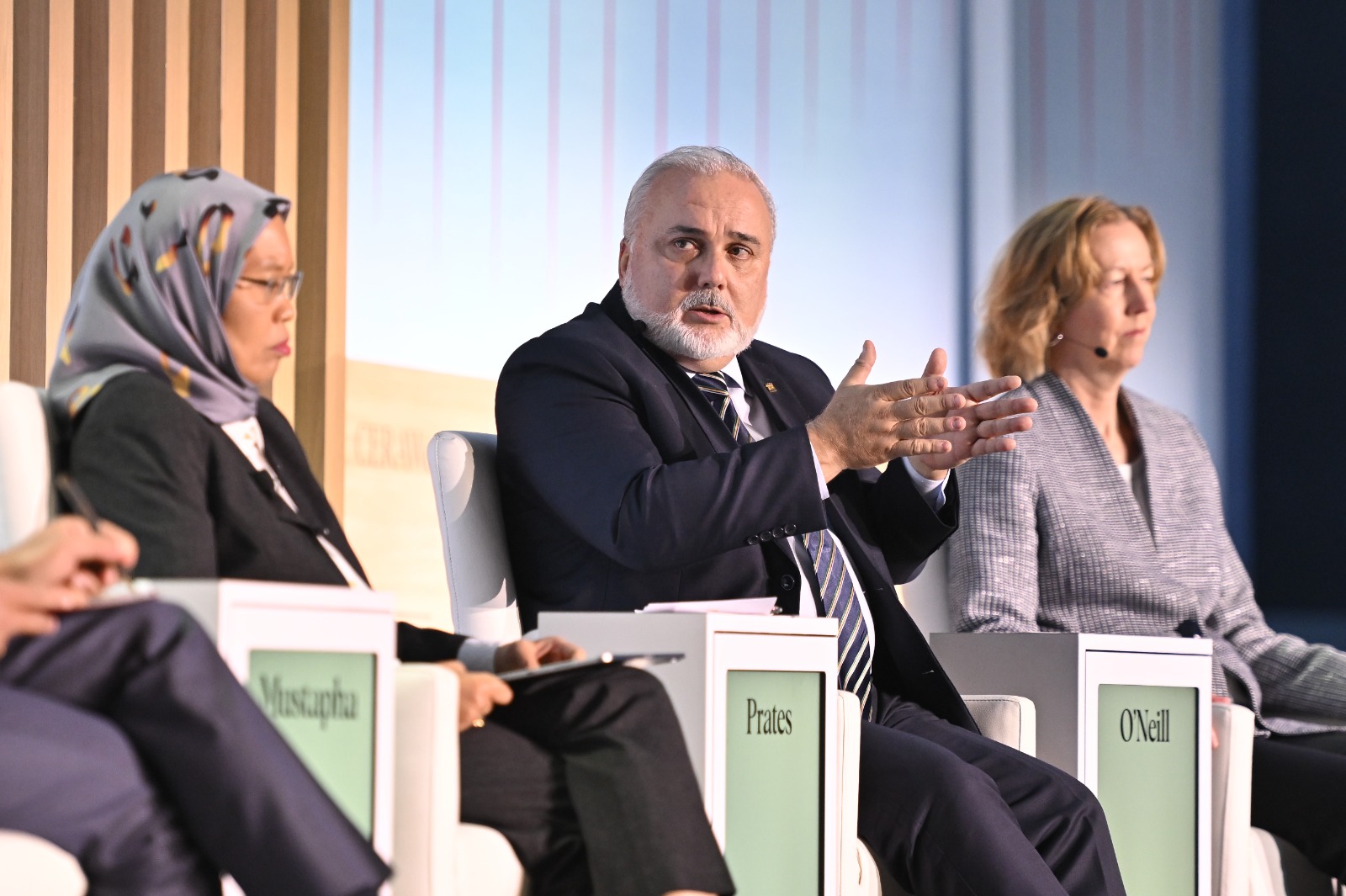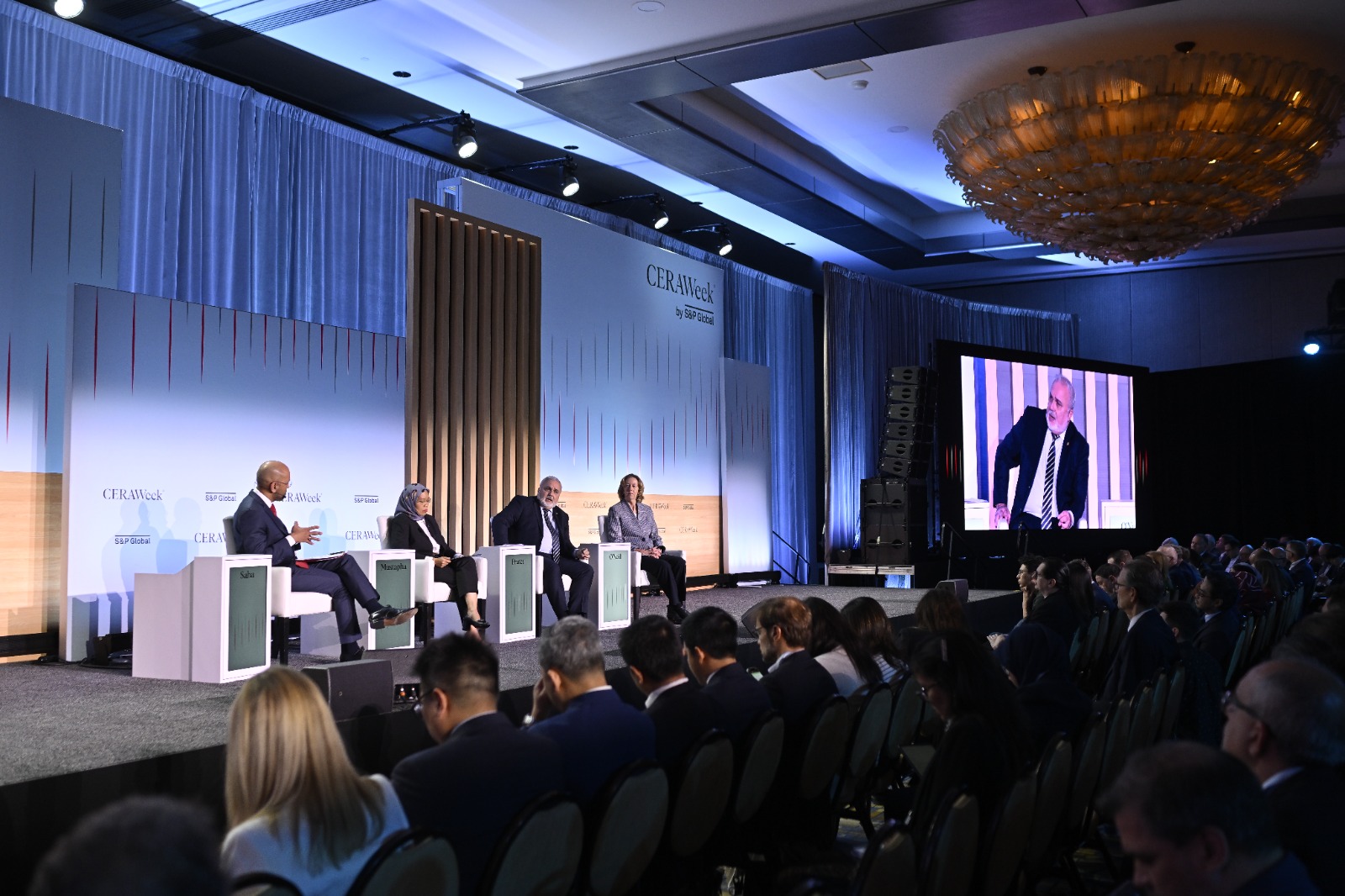O uso deste material é autorizado apenas para fins editoriais.
Jean Paul Prates argues that local energy sources are the path to a fair energy transition
President of Petrobras took part in a debate on solutions to neutralize global emissions during a plenary session at CERAWeek
Gustavo Galbatto / Petrobras News Agency
President of Petrobras, Jean Paul Prates, took part in a plenary session at CERAWeek, in Houston
Download President of Petrobras, Jean Paul Prates, took part in a plenary session at CERAWeek, in HoustonCERAWeek 2024, the Energy sector's main strategy and business event, kicked off on Monday (3/18) in Houston, USA. This year's theme is "Multidimensional energy transition: markets, climate, technology, and geopolitics.” On the first day of the event, president Jean Paul Prates took part in the Plenary Session "Strategic Choices in a Zero Emission World," together with Saugata Saha, president of S&P Global Commodity Insights; Liza Mustapha, vice president and CFO of Petronas; and Meg O'Neill, CEO of Woodside Energy.
Prates stressed that the oil and gas sector is a fundamental part of structuring the energy transition and leveraging it on a large scale. The panelists defended international cooperation, financing, and compensation arrangements to leverage decarbonization, as well as greater energy efficiency, towards the goal of emissions neutrality.
Prates added that everyone's goal should be to reduce emissions without competition between technologies. According to him, the world must seek to combine the best technologies and energy sources according to each location.
The great advantages of using fossil fuels in energy systems are their relatively low transportation costs and their ability to store energy. Therefore, one of the challenges, according to Prates, is to mitigate the need to transport energy over long distances by looking for local solutions. "Local energy sources will be the key to reducing emissions. This is the trend," concluded Prates.
He also pointed out that companies will need to adopt a variety of strategies to face these challenges. "Each company will need to weigh up its technical skills, its existing asset base, and the natural resource endowments and unique social and economic conditions of its respective geographies in order to formulate its strategies for participating in the energy transition," he added. In this context, Petrobras, like Brazil, has the advantage of having quality, low-cost and low-emission oil.
"We live in a world of inequalities and differences. We still face energy poverty in many places. That's why we must be unanimous in seeking a fair energy transition that is carried out gradually and responsibly," he concluded.
OGCI - On Monday morning, Prates also participated in a meeting of the leaders of the Oil and Gas Climate Initiative (OGCI), a group formed by the largest companies in the oil and gas sector to take action in response to climate change. The meeting brought together 12 presidents of the largest oil and gas companies to discuss measures for reducing emissions and energy transition.
About CERAWeek 2024
Held from March 18 to 22, CeraWeek 2024 is one of the world's largest energy conferences in Houston, USA. This year's edition will be attended by 1,400 speakers and 8,000 delegates from 85 countries. The meeting will be attended by leaders of major energy companies, as well as representatives of politics, the financial market, and various industries.
Photos
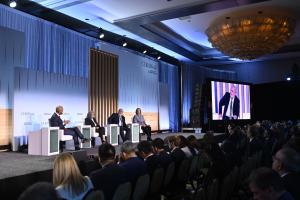
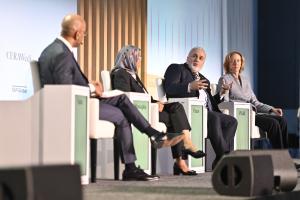
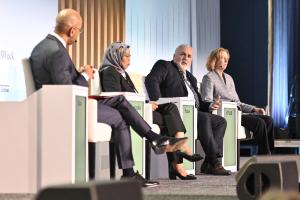
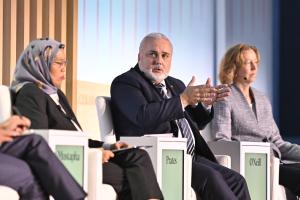

Downloads
Text of this article
Text downloadVideos from this article
Você pode se interessar por
Browse the Sections:
Choose a channel:
Accessibility:
Language:
Select a language:
